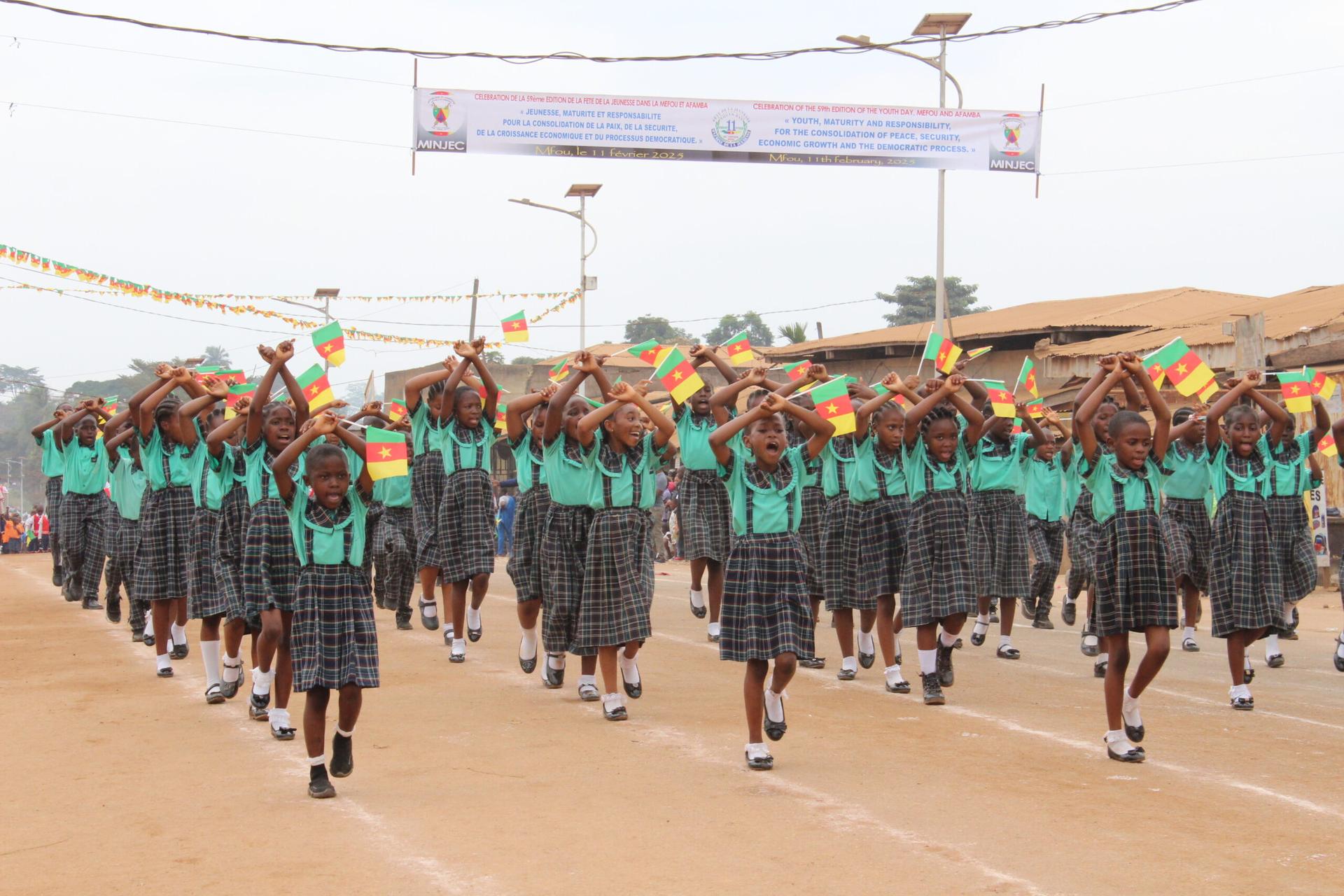YAOUNDÉ, Cameroon – Catholic young people in Cameroon have blasted the country’s leadership for failing to provide the requisite environment for them to grow.
They were speaking to Crux as the country celebrated its National Youth Day on February 11.
Appollonia Mboh Kungcho puts on a radiant smile. Her smile almost instantly fades when Crux asks her if National Youth Day has any meaning for the young people.
“There are no jobs. The system of education is outdated. What you learn in school is actually not what you apply on the field,” she said.
Gregory Mombanchi, a Master’s Degree candidate who works as a primary school teacher, bemoaned “a crushing tax burden” that has rendered advancement for many young people practically impossible.
“You can see that young people are facing a lot of hardship when you look around. There aren’t enough jobs. “Teachers are underpaid in many private schools,” he claimed.
According to him, a lot of young people are now being pushed by poverty to engage in “scamming, theft, and other destructive practices in society.”
Mombanchi complained that when youths engage in small businesses to keep hope alive, the government asphyxiates those businesses with punishing taxes.
“They are taxed heavily. Even the little benefit they get to develop themselves is taken away (in the form of taxes,” he told Crux. “This is not good.”
A young lady who requested anonymity because she works in a sensitive state institution had an equally chilling assessment of the direction Cameroon has been going since Paul Biya came to power in 1982.
“Generally speaking, it’s not so positive,” she said.
“We have a youth council, but the opinion of all the youths of this country is not taken very much into consideration,” she added, highlighting the sense of exclusion of the youths from public affairs.
She also blasted the authorities for failing to initiate the necessary dialogue that can lead to a return to peace in Cameroon’s English-speaking regions.
Separatists in the two regions have for eight years now been fighting to create a new nation to be called Ambazonia – complaining about decades of marginalization and exclusion by the predominantly Francophone government in Yaoundé.
The Catholic youths also had their own ideas about the kind of leader Cameroon deserves as the nation prepares for a presidential election in October.
President Paul Biya, who turns 92 on February 13 and has been president since 1982, is likely to seek another term. The Catholic young people say they believe that won’t be a good idea – re-echoing the call made by some Bishops that it was time for the world’s oldest leader to step aside.
“I’m looking forward to the presidential elections. I’m hoping that whoever wins should be able to change the system because what is in place is not working,” Kungcho told Crux.
Mombanchi told Crux he would want to see a president capable of doing away with the administrative bottlenecks that have historically stifled growth, and one with the capacity to jumpstart industry and encourage business by scaling down taxes.
Asked if Biya should run again, Ernestine Tchoffo told Crux that it would be foolhardy for the president to want an 8th term in office, because his 42 years in power have brought largely feelings of pain and anguish for Cameroonians.
“Don’t mind the fact that you see us coming out from Mass looking bright on our faces, but deep in us we are dying of suffering,” she said.
“We would like a president who takes our problems into consideration and who designs development strategies that harness every effort to the growth of the country,” Tchoffo said.
She echoed the position of some Catholic bishops, who recently raised concerns about President Biya’s age and his capacity to continue running the affairs of the country.
“I think it’s not just the Catholic bishops who say so. Humanly, we too see that the president is diminished. Even if he were just a family head, how can a man of that age still be ruling even a family? We don’t need to listen only to the bishops of Cameroon. The President himself should know that if you love your country, you will not do what he is doing,” she said.
“We appreciate all that he did when he was young, when he was strong, but now he is tired. Let him hand it to another person who is strong, who can go to various parts of the country to assess the problems of the people in view of resolving them,” Tchoffo told Crux.
In his address to the youth, the president pushed back on the criticisms, saying his government has been proactive in resolving the problems of the youths, particularly the problem of unemployment.
“I have instructed the Government to establish a regulatory framework to support the recruitment of first-time jobseekers,” Biya said in his February 10 address.
“This mechanism is intended to provide better support to young people who have never had a job and to help them find their first job,” he added.














